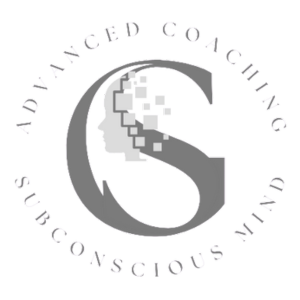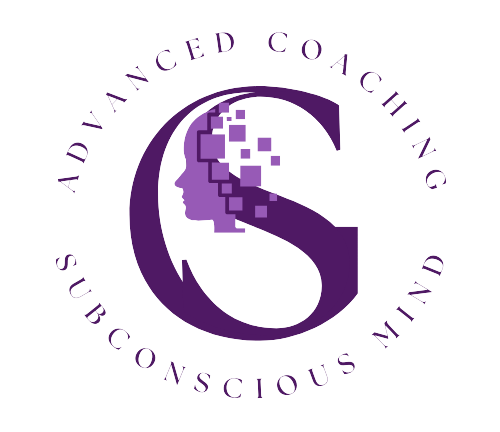Let's Learn About Life Coaching


What Life Coaching Is?
A Collaborative Journey: At its core, life coaching is a collaborative and supportive partnership between a coach and a client. It's a relationship built on trust, where the coach supports clients in identifying, exploring their dreams, overcoming obstacles, and achieving their personal/professional aspirations much faster.
Goal-Focused Adventure: Life coaching is about turning dreams into specific, achievable goals. Whether you want to find a better work-life balance, improve your relationships, and communication skills, or advance your career, a coach helps you map out the steps to get there.
Empowerment and Growth: This process is all about empowerment. Coaches believe in your potential and provide the tools and encouragement you need to harness your strengths, break through barriers, and grow into the best version of yourself.
Creating Action Plans: Together, you'll create actionable plans that bring clarity and direction to your journey. Your coach helps you break down big goals into manageable steps, keeping you motivated and focused on the right track.
A Holistic Perspective: Life coaching looks at the whole picture of your life. It’s not just about one area; it’s about how different parts of your life—like your career, relationships, health, and personal growth—fit together and influence each other.
Building Accountability: Accountability is key. Your coach will check in regularly, celebrating your successes and helping you stay on track with your commitments, even when things get tough.
A Safe Space: Life coaching offers a safe, non-judgmental space where you can openly explore your thoughts and feelings, and experiment with new ways of thinking and behaving. It's a confidential environment where you can be yourself without fear of judgment.
What Life Coaching Is Not?
Not Therapy: Life coaching isn’t therapy. While therapy delves into past traumas and emotional healing, coaching is about looking forward and making positive changes in your life. Coaches help you move from where you are now to where you want to be.
Not Consulting: Coaches aren’t consultants who give you specific advice or solutions. Instead, they ask powerful questions and provide guidance to help you discover your own answers and solutions.
Not Mentoring: Unlike mentors who share their experiences and offer advice, coaches help you tap into your own wisdom and insights. They believe you have the answers within you, and their job is to help you find them.
Not Training: Life coaching isn’t about teaching you a set of skills like a trainer would. It’s about helping you develop broader skills and insights that you can apply across all areas of your life.
Not Directive: Coaches don’t tell you what to do. Instead, they help you explore your values, beliefs, and goals, empowering you to make decisions that are right for you.
Not a Quick Fix: Life coaching isn’t a magic solution. It requires your commitment and effort. It’s about continuous learning, growth, and development over time.
Not Therapy: Life coaching isn’t therapy. While therapy delves into past traumas and emotional healing, coaching is about looking forward and making positive changes in your life. Coaches help you move from where you are now to where you want to be.
Not Consulting: Coaches aren’t consultants who give you specific advice or solutions. Instead, they ask powerful questions and provide guidance to help you discover your own answers and solutions.
Not Mentoring: Unlike mentors who share their experiences and offer advice, coaches help you tap into your own wisdom and insights. They believe you have the answers within you, and their job is to help you find them.
Not Training: Life coaching isn’t about teaching you a set of skills like a trainer would. It’s about helping you develop broader skills and insights that you can apply across all areas of your life.
Not Directive: Coaches don’t tell you what to do. Instead, they help you explore your values, beliefs, and goals, empowering you to make decisions that are right for you.
Not a Quick Fix: Life coaching isn’t a magic solution. It requires your commitment and effort. It’s about continuous learning, growth, and development over time.
Understanding these nuances helps you see how life coaching can be a powerful catalyst for change, helping you unlock your potential and achieve your dreams. If you have more questions, do not hesitate to reach out.
As a certified and accredited PCC by ICF - (Professional Certified Coach by International Coaching Federation),I’d like to share the Differences Between an ICF Accredited Coach and a Non-Accredited Coach. Understanding these differences helps you choose the right coach for your personal needs and expectations:
1. Training and Education

ICF Accredited Coach:
Comprehensive Learning: An ICF-accredited coach has gone through thorough training from an ICF-accredited program. This means they've invested a lot of time learning essential coaching skills, ethical guidelines, and practical techniques to help their clients effectively.
Consistent Standards: Their training follows a consistent, high-quality curriculum, ensuring they know how to build trust, listen actively, ask powerful questions, and create meaningful insights.
Non-Accredited Coach:
Varied Backgrounds: Non-accredited coaches may have a wide range of training experiences. They might have attended different programs or taken various courses, but the depth and quality can vary greatly.
No Guarantee of Quality: Since their training isn't standardized, there's no assurance that they've covered all the important aspects of coaching.
2. Credentialing and Experience

ICF Accredited Coach:
Rigorous Assessment: To become accredited, coaches must pass tough exams and evaluations. They need to demonstrate their coaching skills through written tests, recorded sessions, and sometimes live assessments.
Proven Experience: Accredited coaches have to log a significant number of coaching hours with clients, proving they've applied their training in real-world scenarios.
Non-Accredited Coach:
Inconsistent Qualifications: Non-accredited coaches don’t have to go through the same strict credentialing process. Their qualifications might vary widely.
Varied Experience Levels: There’s no standard requirement for how much coaching experience they need, so their practical experience can be very different.
3. Adherence to Ethical Standards

ICF Accredited Coach:
Strict Ethical Code: ICF accredited coaches follow a stringent code of ethics. This includes maintaining confidentiality, avoiding conflicts of interest, and acting with integrity.
Accountability: If something goes wrong, clients can file a complaint with the ICF, which has a process to handle and investigate these issues.
Non-Accredited Coach:
Variable Ethics: Non-accredited coaches might not be held to the same ethical standards. While many are ethical, there’s no formal oversight to ensure this.
No Formal Complaint Process: Clients don’t have a structured way to address ethical concerns with non-accredited coaches.
4. Continuous Professional Development

ICF Accredited Coach:
Ongoing Learning: To keep their credentials, ICF coaches must continue their education. They attend workshops, seminars, and training courses to stay current.
Commitment to Improvement: This ongoing learning ensures that accredited coaches are always refining their skills and staying up-to-date with the latest coaching practices.
Non-Accredited Coach:
Varied Commitment to Growth: Non-accredited coaches don’t have formal requirements for ongoing education. Their commitment to professional growth is self-directed and can vary.
Risk of Stagnation: Without the push for continuous learning, there’s a risk that their skills and knowledge may not stay current.
5. Recognition and Credibility

ICF Accredited Coach:
Global Recognition: The ICF credential is recognized worldwide, marking a coach as credible and professional. Clients can trust that they’re working with someone well-trained and ethical.
Competitive Edge: Having an ICF credential can give coaches an advantage, as clients often look for accredited professionals.
Non-Accredited Coach:
Variable Recognition: Non-accredited coaches build their reputation individually. They might not have the same level of recognition as ICF accredited coaches.
Building Trust: They might need to work harder to establish credibility and trust with potential clients, especially those who understand the value of coaching credentials.
If you choose to embark on a life coaching journey with me, please book a complimentary discovery session. During this session, we will define your needs and create a personalized coaching program for you, whether it’s for 1 month, 3 months, 6 months, or a full year.
Choosing Your Path: Empowering Your Decision
As you stand on the threshold of this transformative journey, the choice between 1-to-1 coaching and small group coaching beckons. So, how do you decide?
Reflect on Your Needs:
Take a moment to reflect on your aspirations, challenges, and preferred learning style. Are you seeking personalized attention and tailored guidance, or do you thrive in a collaborative, community-driven environment?
Consider Your Preferences:
Consider your comfort level with vulnerability, group dynamics, and budgetary considerations. Are you drawn to the intimacy of one-on-one sessions, or do you thrive in a supportive group setting?
Embrace Versatility:
Remember, your journey is uniquely yours. You're free to explore both avenues, experimenting with different formats to discover what resonates most deeply with you. Whether you choose 1-to-1 coaching, small group coaching, or a blend of both, trust your instincts and embrace the path that aligns best with your aspirations and values.


1-to-1 Coaching: A Personalized
Odyssey
Imagine a journey hand-in-hand with a trusted guide, navigating the depths of your psyche and aspirations with undivided attention. That's precisely what 1-to-1 coaching offers—an intimate, personalized voyage tailored exclusively to you.
Personalized Attention:
In the realm of 1-to-1 coaching, you're the focal point. Every session is dedicated solely to your journey, allowing for deep exploration, personalized strategies, and targeted interventions tailored to your unique circumstances.
Unveiling Deep Insights:
With undivided attention from your coach, you can delve into the depths of your emotions, beliefs, and aspirations. This intimate setting fosters an environment of trust and vulnerability, enabling profound breakthroughs and self-discovery.
Flexible Pace and Focus:
Your coaching journey unfolds at your pace, with sessions structured around your evolving needs and goals. Whether you're navigating personal challenges, pursuing career aspirations, or seeking holistic transformation, 1-to-1 coaching adapts seamlessly to your journey.


Small Group Coaching: Harnessing Collective Energy
Picture yourself surrounded by a supportive community of fellow travelers, united in their quest for growth and empowerment. That's the essence of small group coaching—a collaborative journey fueled by collective wisdom and shared experiences.
Community Support:
In small group coaching, you're not alone on your journey. You're part of a close-knit community, where mutual support, empathy, and accountability thrive. The collective energy of the group propels each member forward, fostering a sense of camaraderie and shared growth.
Diverse Perspectives:
Within the group setting, you're exposed to a rich tapestry of perspectives, insights, and experiences. This diversity fuels creativity, broadens your horizons, and offers fresh insights into your own journey. Through peer interaction and feedback, you gain new perspectives and solutions to navigate challenges effectively.
Cost-Effective Investment:
Small group coaching often presents a more cost-effective option compared to 1-to-1 coaching, making it accessible to a broader audience. Despite the shared setting, the coaching experience remains deeply impactful, with personalized attention and guidance tailored to the group's collective needs.
When You Look In The Mirror, How Deep Is Your Reflection?

2025
Ready to leap into a life of empowerment, balance, and unparalleled fulfillment? Your transformative journey awaits! Take the first step!
PERSONAL BREAKTHROUGH
AND HAPPINESS COACH
"Inner Growth Academy"
Grigoriou Theologou 1, Kapsalos, 3087,
Limassol, Cyprus
Email : [email protected]
Phone : +357 96 380 994
2025 ALL RIGHTS RESERVED
GINTARE SIDO -
MANIFESTATION BREAKTHROUGH COACH
Email : [email protected]
Phone : +357 96 380 994
Ready to leap into a life of empowerment, balance, and unparalleled fulfillment? Your transformative journey awaits! Take the first step!

